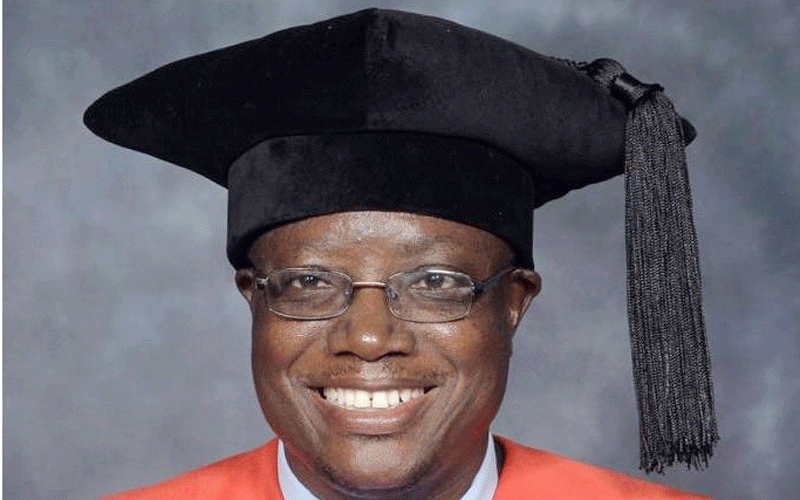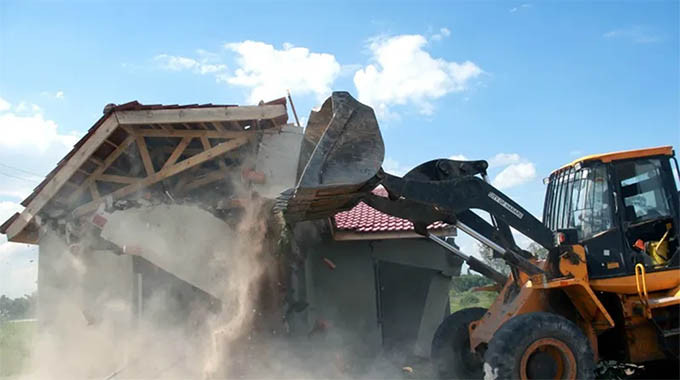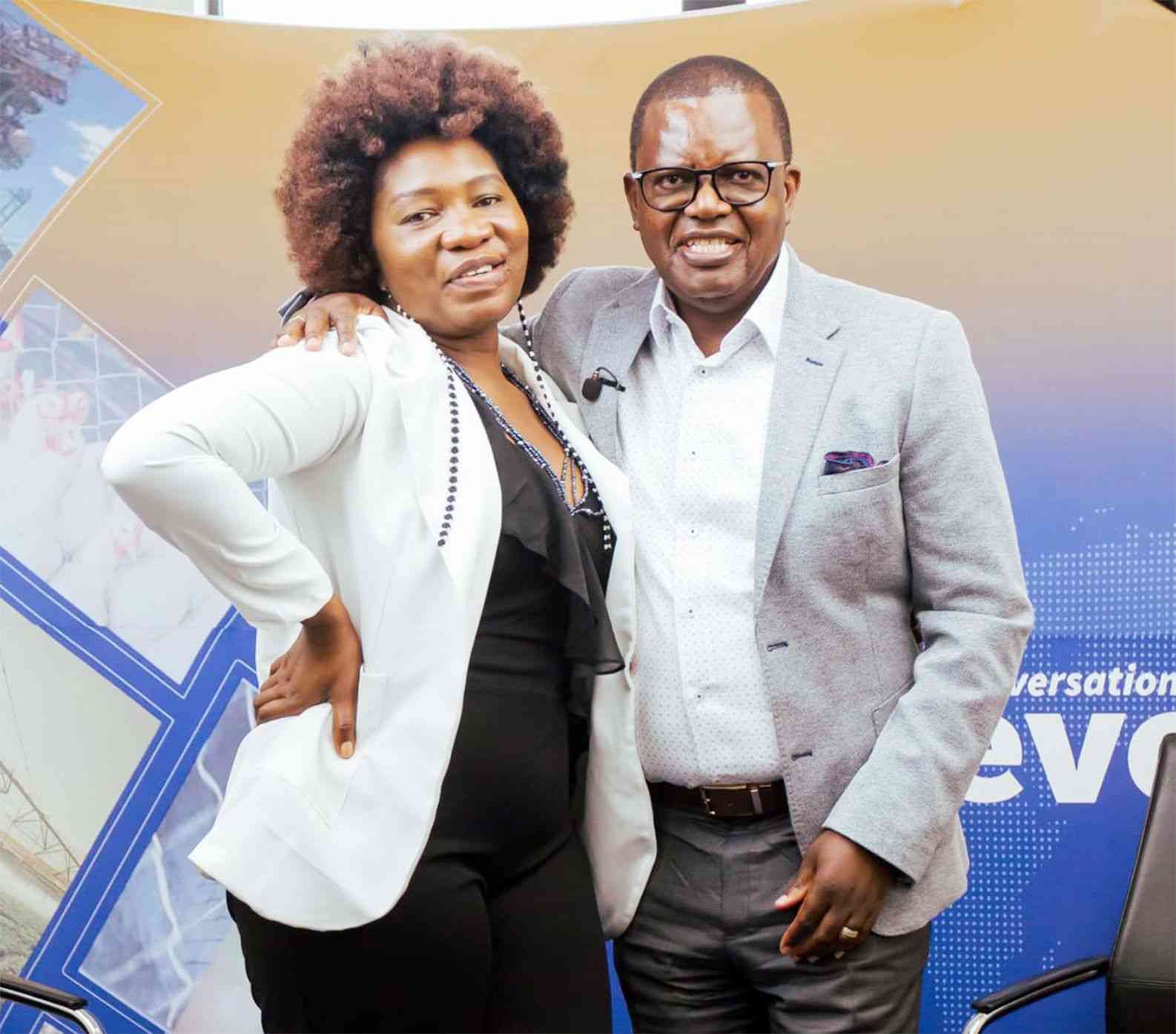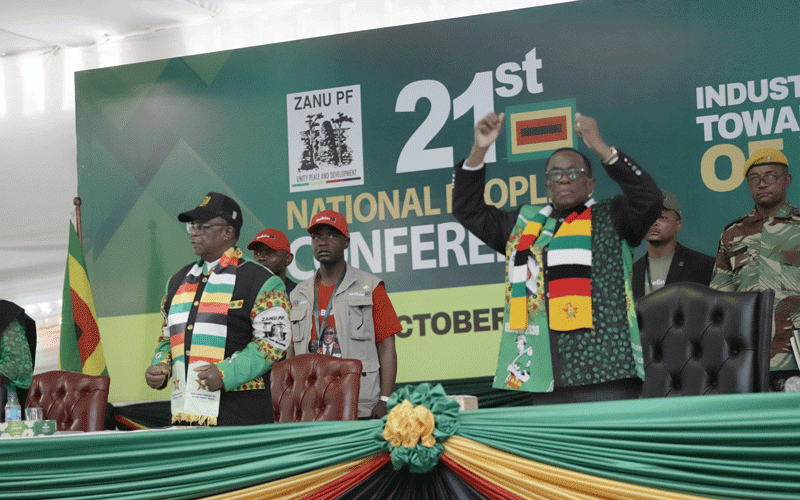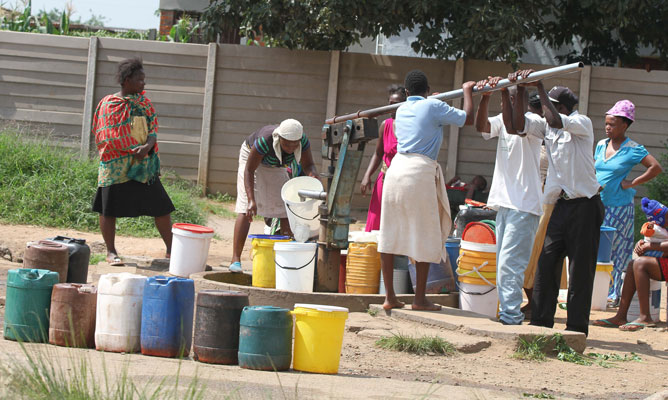
TATENDA Marucha pushes his cart around 5am every morning collecting empty 20-litre containers from different households as he heads to the nearest borehole close to Kamunhu business centre in Harare’s Mabvuku high-density suburb.
MOSES MATENGA
Marucha has turned himself into an entrepreneur, taking advantage of the erratic water supply by the Harare City Council and charges $1 for filling a 20-litre container with the precious liquid. But he is not the only one in the business.
“I make more than $15 a day by doing this. It is indeed a good venture and it also seems I have inspired many who are jobless this side,” he said.
Many residents of Mabvuku have gone for years without running water and a survey last week showed that thousands of families have now resorted to drinking water from unprotected wells.
Marucha said while the city was providing water to a few houses on weekends only, most places in the area have remained dry for years.
“From Saturday to Monday, some places have water but some areas have had no water for years now,” he said.
A drive around Mabvuku and the nearby settlement called Bhobho showed that most people were spending more time at boreholes, while others were even using their vehicles to run the business of supplying water, charging $1 per 20-litre container.
- Chamisa under fire over US$120K donation
- Mavhunga puts DeMbare into Chibuku quarterfinals
- Pension funds bet on Cabora Bassa oilfields
- Councils defy govt fire tender directive
Keep Reading
“We have chosen to forget about Harare water and now we are looking at wells and boreholes for water,” said Lorraine Munikwa.
Wells have been dug at almost every house, but council still sends residents huge water bills despite the absence of supplies.
Residents fear an outbreak of waterborne diseases due to lack of potable water and the use of unprotected wells.
“How can our children and even ourselves survive like this?” asked one resident. “A health hazard is looming and something has to be done to address the situation.”
Typhoid cases have since been reported in parts of Harare such as Glen Norah, Hopley and Budiriro amid fears of another cholera outbreak similar to the one in 2008 which left over 4 500 people dead.
The affected suburbs have been receiving erratic water supplies but council insists the water shortages will be a thing of the past if the ongoing rehabilitation work at Morton Jaffray is completed.
Last week, Harare Water director Christopher Zvobgo warned residents of severe water shortages, mostly during weekends, until July, as his team is busy with refurbishments at Morton Jaffray.
Council is in the process of installing equipment bought under the $144 million loan facility from a Chinese bank and was delivered recently.
The city is also working on getting another $178 million loan from a Chinese firm for water projects.
Zvobgo said machinery being replaced had become obsolete as it has commissioned in 1953.
Harare is targeting a pumping capacity of 614 megalitres a day at Morton Jaffray.
Last week, the Harare Residents Trust (HRT) said residents were in need of more boreholes as the water situation continued to worsen.
“Residents are appealing for more boreholes from Harare City Council. Residents also want council to fix some boreholes that are no longer functioning so as to make sure that everyone can access safe water,” HRT said in a statement.
“With the tight water schedule that was released in January due to the water works at Morton Jaffray, residents need available, accessible, acceptable and quality water to stem the ongoing typhoid outbreak. “The city should make sure they provide alternatives to supply safe water to residents.”
Harare mayor Bernard Manyenyeni said council was revisiting the shutdown schedule in view of the typhoid.
“There has been a proposal to harness underground water using boreholes as a sustainable option,” he said.
“The plan is to get the reservoirs to then feed into the mains. You shouldn’t leave your house to get water. Remember, borehole water requires little or no treatment, which is the other attraction. That is the proposal, basically.”
Several suburbs including Mabelreign’s Sentosa area and Zimre Park have gone for years without water and residents there are now relying on boreholes or buying water from bulk water suppliers. In Sentosa, the HRT reported that residents had gone for eight years without water.
Harare has been battling water shortages as demand has outstripped supply, while banking on the Morton Jaffray project to arrest the situation.
The city is also looking into the Kunzvi Dam project as the panacea to its water woes.
Harare City spokesperson Michael Chideme, however, said council was now able to provide tap water to Mabvuku, though admitting that it was erratic due to the maintenance currently underway at the Morton Jaffray.
“There is water available in Mabvuku and at one time we went there for a tour where we showed people water,” he said.
“People who are saying they have not had water for years are not being honest.”
Council’s poor water quality has also spawned a booming bottled water industry in the capital.

